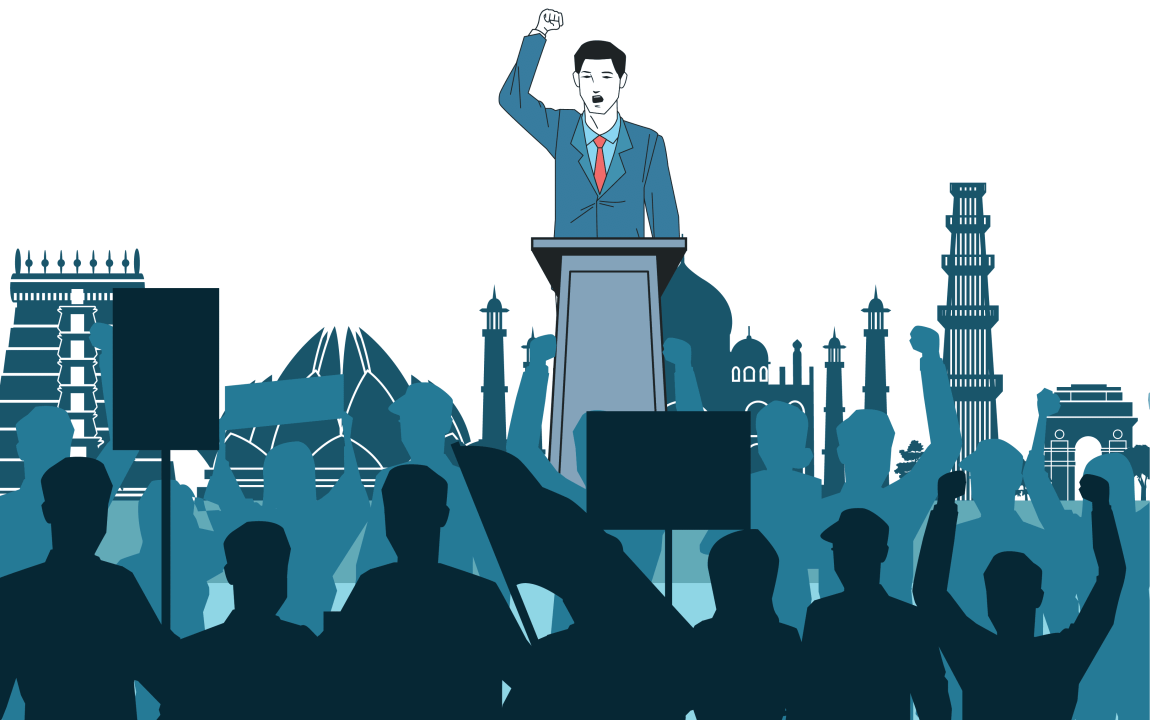
Politicians as Leaders … or Leaders as Politicians.
Although it is often said that we look for leadership in our politicians, the practice of modern politics has little overlap with transformational leadership. Modern politics is characterized by a sharp focus on the acquisition and retention of political figure rather than on appealing to people’s higher moral values and inspiring people to undertake enduring changes. The reason that this is so powerful and practical is that, for the most part, politicians who are not sharply focused on the acquisition and retention of power either do not acquire office in the first place or, if they manage to acquire it, do not survive for long.
Politics has different goals, dynamics, modalities of action, and measures of success from those of transformational leadership. Successful politicians are elected and reelected. This means that by which they acquire and retain political offices, they are different from leadership. A successful politician is one who is willing to fight, attack an established order, and be ruthless in the pursuit of power. Those without a stomach for such fights, who are often the best people, never make it to a high office.
A successful politician needs to be well armed, which in modern settings means, ‘well-funded.’ Being will with financial resources is a sine que of non-political success, and enables candidates to conduct the vigorous campaign necessary for winning elections. Politicians must be willing to play hardballs. Going as close to the edge of the law as possible without actually being convicted of illegality, and where necessary, being the law to their own advantage. The release of damaging information about opponents at the most opportune moment, secret charges, innuendo, and rumors have become the standard modes operandi of modern politicians.
A politician must be flexible and adjust their agenda to reflect unpredictable shifts in restitution. This may mean a willingness to break campaign promises, which in any event tends to be vague and general, in order to preserve flexibility. This is at odds with the commitment needed for transformational leadership, where a shop, explicit, and laser-like focus on a worthwhile goal is paramount.
Despite the hardball tactics actually practiced to win elections, which may involve amoral behavior such as breaking one’s word or practicing character assassination of opponents, successful politicians must endeavor to preserve a public image of being honest, compassionate, moral, and devout. Often, this entails using underlings to perform the dirty work of getting elected. A successful politician typically pursues issues on which there is already a consensus in the electorate, rather than those on which people have to be persuaded to do something different. Machiavelli famously explained that the innovator, “ makes enemies of all those who derived advantage from the old order and finds but Lukewarm defends among those who stands to gain from the new one.” On occasion, politicians may be able to find issues that have a hidden consensus and new coalitions, but they tend to avoid the heavy lifting of leadership, namely persuading people to raise their moral insights and agree to do something fundamentally different.
As a result, retaining power principally aborts to listen to the electorate. “ If you want to get elected, learn to speak. If you want to stay elected, learn to listen.”
Politicians are typically ambiguous regarding their commitment to change. To the extent that political candidates present themselves as, “candidates for change, they typically define the change either in terms of some existing consensus or in such a general form that it is hard to know what exactly promised. They say, “get this country moving” or “clean up the mess of the previous administration” and the like. For a politician to urge not to acquire power first. Hence, few successful politicians make explicit commitments to transformational changes.
It’s common to criticize modern politics for their “ frequent failure to rise to the full need of leadership.” However, should we really be surprised by the lack of political leadership? Nothing in the terminology of politics suggests that the people are electing ‘Leaders.’ Thus the top politician elected to become, not a ‘leader’ but rather the ‘president’ that is to say, someone who pre sides over the body politics without any implication of change.
In practice, those who hold public office – President, Governor, Senator–name them have to deal with myriad issues. If they are singular and mindedly focused on a narrow set of issues as a leader, what is going to happen to the other issues that clamor for attention? In any event, politicians who are not leaders can perform useful social functions by holding body politics together. Successful politicians contribute by establishing boundaries and values, norms, and regulations. They build on the status quo and hold a space in which many different types of energy can flourish – those who pursue change as well as those who defend existing values.
They can invite different voices to define and solve problems. They can contain conflicts, so that they can be resolved. They can guide the forces of change by giving them direction, value, and purpose while providing a sense of stability to help frame the change being promoted. These are not qualities to be sneezed at, even though they are not necessarily qualities of a transformational leader.